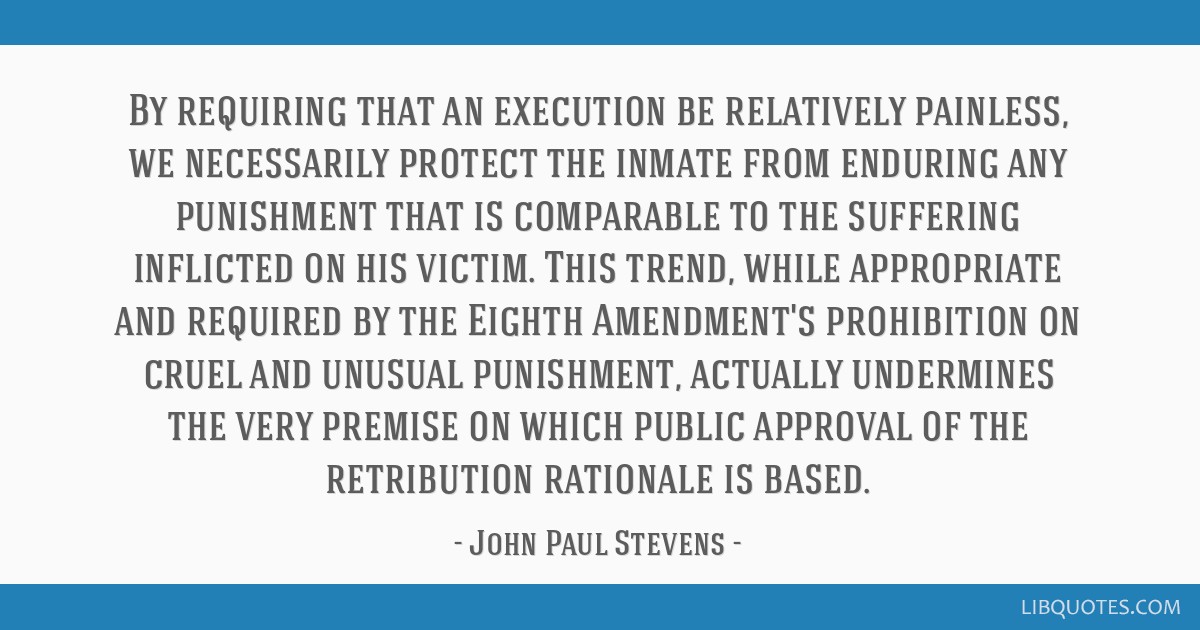By requiring that an execution be relatively painless, we necessarily protect the inmate from enduring any punishment that is comparable to the suffering inflicted on his victim. This trend, while appropriate and required by the Eighth Amendment's prohibition on cruel and unusual punishment, actually undermines the very premise on which public approval of the retribution rationale is based.
Concurring in the judgment, Baze v. Rees, 553 U.S. 35 (2008)























